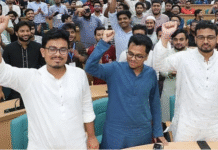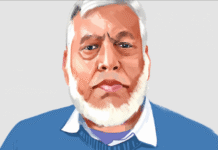Assistant Secretary, Bureau of Economic and Business Affairs Dhaka, Bangladesh
This, in part, is what U.S. Secretary of State John Kerry means by our Shared Prosperity Agenda and, on my travels, I have spread this and similar messages from Beijing to Dhaka, and from Mumbai to Delhi.
In conversations with Bangladesh government officials, garment factory owners, labor leaders, and others, we focused on the future of our shared economic growth.
We spoke about ways we can build on the success of the ready-made garment and knitwear industry, which has already contributed so much to economic development, employment, higher incomes, and better skills in Bangladesh, and which has helped to alleviate poverty, empower women, and advance progress on the timely attainment of several Millennium Development Goals.
We all recognized that – as more global companies make their investment destinations based on a country’s workers’ safety and labor rights profile – no government can afford to stand still when it comes to embracing change.
There was agreement that building a stronger “Brand Bangladesh” with a positive reputation for safeguarding labor rights would attract more foreign investors – an essential key to future growth. Stronger enforcement of workers’ rights and healthier labor relations, along with attention to such related issues as building safety, will help Bangladesh ensure broad-based growth and build a middle class as it competes globally and moves up the value-added chain. As I emphasized during my visit to Dhaka, the United States is proud to have played a supportive role in Bangladesh’s economic development success story over the past 25 years. The United States is now one of Bangladesh’s largest foreign investors and our commercial relationship is equally promising: two-way trade has grown over 50 percent in the past two years, from $4 billion to more than $6 billion.
An improved labor rights climate would encourage more American companies to invest, build on our trade and investment ties, and help burnish Bangladesh’s economic role in the region and beyond. More importantly, it would enhance the lives – and increase the productivity – of the nation’s most valuable economic asset: its working people.
The stakes couldn’t be higher for both our nations: President Obama has emphasized how economically important this market is to the prosperity of the American people. U.S. firms recognize the country’s potential and are eager to do business, and the Business Council for International Understanding was proud to host and meet with Prime Minister Sheikh Hasina in New York in September during the UN General Assembly.
With a large and young population in need of an economic future, and consistent 5-6 percent annual GDP growth to build on, Bangladesh has more than 160 million personal reasons to move forward on workplace rights and safety.
The Bangladesh Government has made noteworthy progress – on safety inspections, on passing Labor Act amendments, on facilitating union registrations, and on its efforts to comply with international labor standards and restore its Generalized System of Preferences (GSP) benefits. And it also recognizes that improved labor rights will work better in a Bangladesh that embraces broader democratic processes and institutions – from freedom of expression to an independent judiciary.
But there is much work to be done, such as enacting implementing regulations of the 2006 and 2013 Bangladesh Labor Act Amendments, creating a mediation mechanism to systematically protect workers from unfair labor practices such as harassment and intimidation or worse, and hiring more labor inspectors. Moreover, workers in Export Processing Zones should have the same labor rights as workers elsewhere.
The apparel sector alone will not lift Bangladesh to the next level of prosperity if the economic gains from trade fail to benefit all of society. For Bangladesh to unlock its potential for sustainable and broad-based growth, much will depend on the collective efforts of the government of Bangladesh, apparel manufacturers, the nearly 4 million workers in the factories, and the dozens of new and independent trade union leaders springing up in a transforming industry. Empowering workers to bargain for fair wages and to ensure their own safety would be a critical step toward that future – and would send an important message to investors.
In the weeks and months ahead, I look forward to hearing more about Bangladesh’s efforts to transform the garment sector and its forward progress in other areas as well. I also look forward to continuing to share the important progress I have seen in Bangladesh with U.S. government and business leaders.
This op-ed originally appeared in The Financial Express, The Daily Star, and Prothom Alo in Dhaka, Bangladesh.
Source: US Department of State









